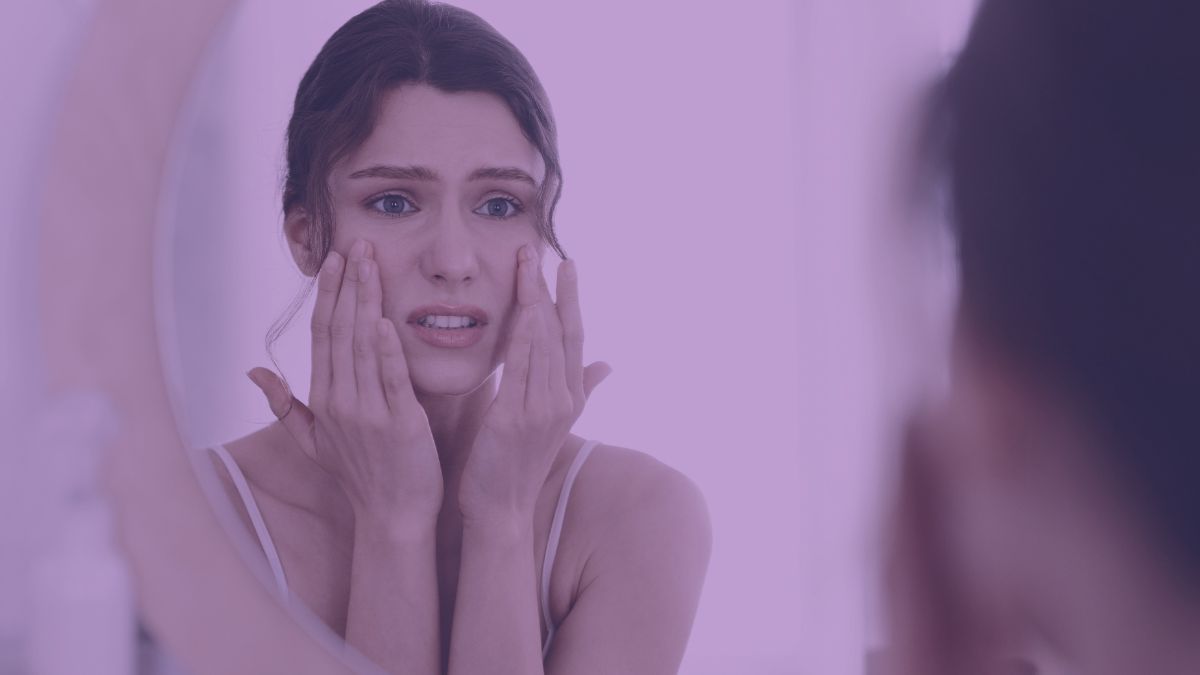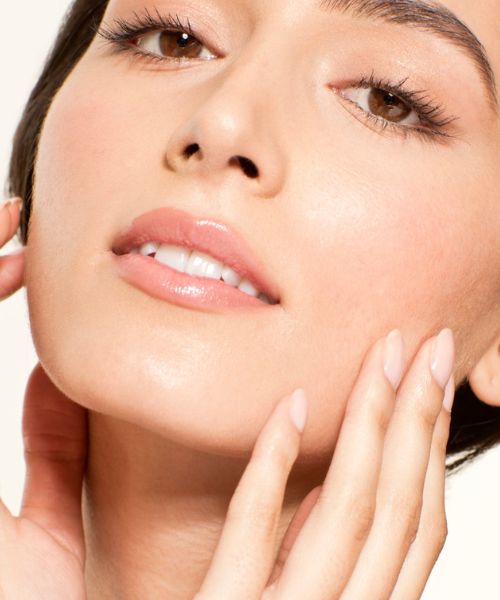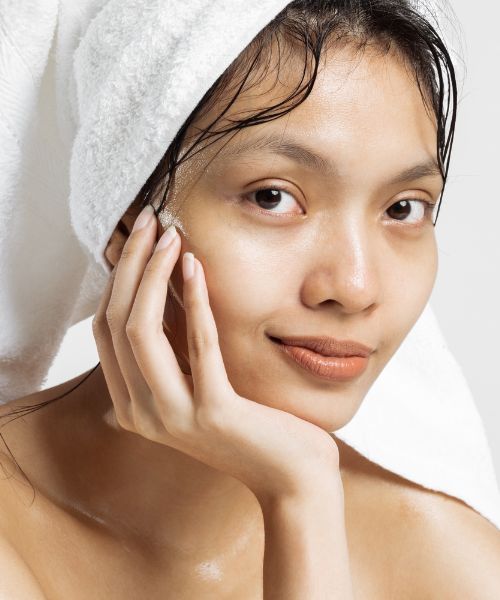Tretinoin is a fantastic product that can address inflammatory skin conditions such as acne and concerns like signs of aging, lines, wrinkles, hyperpigmentation, texture, and photodamage.
Therefore, in this article, we will talk about what tretinoin is, how it works once applied to the skin, what its benefits are, and some side effects you need to watch out for when starting this anti-aging powerhouse for the first time.

What is Tretinoin?
Tretinoin is a generic name for a topical medication derivative of vitamin A also known as all-trans retinoic acid, that is commonly prescribed to address various skin concerns in the form of a gel or cream, depending on the concern at hand.
Once applied to the skin, tretinoin will travel deeper into the epidermis and bind to specific receptors in the nucleus of cells, which are involved in gene expression and cell differentiation.
All-trans retinoic acid, which is the active component in tretinoin, binds to retinoic acid receptors (RARs) and activates them. This leads to changes in gene expression, causing immature cells to differentiate into mature ones and develop specific functions, such as collagen production for skin repair and renewal.
Additionally, tretinoin also “teaches” the skin cells to behave in a “younger” way, which means they will renew themselves quicker and travel to the skin’s surface faster, resulting in a fresher, brighter, and more uniform complexion.
All-trans retinoic acid is commonly used in the treatment of acne, but it is a well-researched anti-aging component that has been shown effective in addressing concerns such as photoaging, hyperpigmentation, as well as deeper lines and wrinkles due to its ability to promote cellular turnover and aid in collagen synthesis.
The Many Benefits of Using Tretinoin

Due to the action the active ingredient in tretinoin performs in the deeper layers of the epidermis, this topical product has many benefits for the skin.
Some of the main benefits of tretinoin are:
- Reduced acne lesions.
- Refined skin texture.
- Faded hyperpigmentation.
- Evened out skin tone.
- Reduced sun damage.
- Decreased appearance of fine lines and wrinkles.
As mentioned, tretinoin directly affects the skin cells by binding with specific receptors and regulating gene expression.
This means that tretinoin can impact several major skin concerns and address skin conditions that occur due to abnormalities or disturbances in cellular processes.
So, let’s start with acne.
Commonly used to treat acne, tretinoin promotes cellular turnover, or desquamation, which is a process that helps sluggish dead skin cells shed from the skin’s surface by reducing the cohesion between cells in the follicular lining and making it harder for them to stick together and form comedones.
Additionally, all-trans retinoic acid has anti-inflammatory properties, which help reduce redness and swelling associated with acne lesions.
Furthermore, tretinoin can also refine rough skin texture because the active ingredient inside the product, all-trans retinoic acid, helps increase the production of glycosaminoglycans (GAGs), which are natural moisturizing factors that help hydrate and plump the skin.
Tretinoin also stimulates fibroblasts, which are cells that produce collagen and elastin, leading to thicker, more elastic skin. Additionally, all-trans retinoic acid can improve blood flow to the skin, leading to a brighter, more radiant complexion.
Over time, these effects can help refine the skin’s texture, reduce the appearance of redness and blotchiness, and promote a healthier-looking complexion.
Moreover, by activating the retinoic receptors in the skin cells and triggering changes in gene expression, all-trans retinoic acid teaches the cells to produce less melanin, which will inhibit the overproduction of the brown pigment and fade existing hyperpigmentation left from old blemishes while preventing new discolored spots from forming.
Finally, tretinoin can also help reduce the appearance of fine lines and wrinkles due to its ability to strengthen the skin barrier and help it retain moisture to protect against collagen degradation, as well as directly stimulate collagen production in the deeper layers of the skin by encouraging the fibroblast cells to increase the production of the skin-firming protein.
From all this, you can see that tretinoin has many beneficial effects on the skin and can be used to address multiple skin concerns, even though we hear about it being prescribed primarily for acne and signs of skin aging.
Can I Use Tretinoin If I Don’t Have Acne?

Yes, you can use tretinoin even if you don’t have active acne. Tretinoin can address inflammatory skin concerns such as acne and can also help improve the appearance of lines, wrinkles, hyperpigmentation, texture, and photodamage.
Additionally, tretinoin can help strengthen the skin barrier in the long run, which will help it function optimally and defend itself against environmental aggressors and pathogens more efficiently.
This means that bacterial overgrowth will be less likely to occur, and even if it does, the skin won’t freak out and react as intensely as it would if the skin barrier was compromised.
The Side Effects of Using Tretinoin
The most common side effects of using tretinoin include dryness, redness, irritation, peeling, flaking, and purging, which can last 4-12 weeks for some people and up to six months for others, depending on the skin’s ability to adapt to the active ingredient.
Most of these side effects occur because all-trans retinoic acid, as mentioned multiple times throughout this article, changes the normal behavior of the skin cells by causing them to differentiate and develop specific functions, such as an increased shedding rate.
This means that, while the cells are getting used to the change and are learning how to behave, there will be an increased shedding, which results in a temporary weakening of the skin barrier due to younger and more immature cells being sent to the skin’s surface.
These cells, although looking more uniform and even, making the skin appear youthful, evened-out, and clearer, don’t have the ability to retain as much moisture as the mature cells that have been shed.
This will result in temporary symptoms of sensitivity that should diminish as the skin gets used to all-trans retinoic acid.
This means that during the first few weeks or months after you start using tretinoin, you may experience these side effects until your skin gets used to it.
It’s important to remember that when starting any new skincare product, especially one that contains active ingredients such as all-trans retinoic acid (tretinoin), you should always start using it gradually and increase the frequency of its use as tolerated by your skin to avoid discomfort and prevent the appearance of some permanent skin conditions such as rosacea and dermatitis that can sometimes be the result of severe and prolonged inflammation.
The post Can I Use Tretinoin If I Don’t Have Acne? first appeared on The Skin Care Culture.


